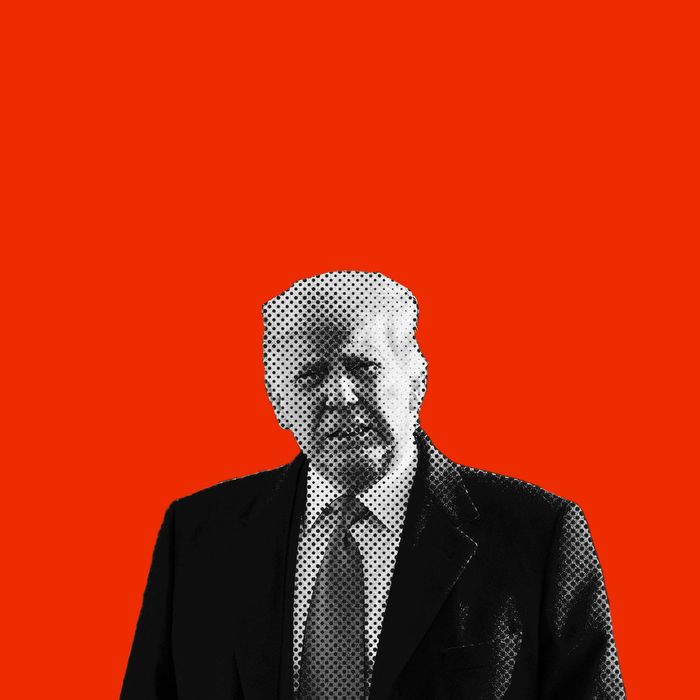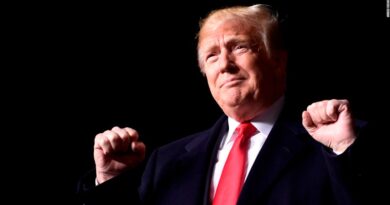When Will Trump Be Indicted Over January 6? Live Updates

Photo-Illustration: Intelligencer; Photo: Getty Images
On Tuesday, Donald Trump announced that he had received a letter from special counsel Jack Smith that informed him that he was, in Trump’s words, a “TARGET of the January 6th Grand Jury.” That means the former president has been officially notified that he is the target of a federal criminal investigation into his attempts to hold onto power after losing the 2020 presidential election, including his conduct before and during the January 6 attack on the U.S. Capitol. Though Trump claimed the letter meant he would soon be indicted — for a third time this year — it’s not fully clear when or if that will happen in this case. Below are updates and commentary on this case against Trump, as this developing story continues to unfold.
That’s not clear. If it’s going to happen, and most legal experts agree it probably will, it could be within days or weeks. When Trump was last informed he was the target of a federal grand-jury investigation — over the mishandling of classified documents — he was charged three weeks later. In this case, Trump’s lawyers reportedly received the target letter on July 16.
Special counsel Jack Smith’s target letter to Trump has not been made public, but it reportedly cites three statutes that could be used to prosecute the former president — though there has been no official confirmation on which ones.
The charges could stem from a number of things Trump and his associates allegedly did in an effort to undo his defeat in the 2020 presidential election, including pressuring leaders in critical states Trump lost, fake-elector schemes in those same states, fundraising off false claims of election fraud, pressuring Vice-President Mike Pence not to certify Biden’s victory on January 6, and rallying supporters to come to Washington, D.C., that same day to “Stop the Steal” and march on the U.S. Capitol.
Based on reporting from the New York Times and others, the possible charges against Trump include:
- Corruptly obstructing an official proceeding, which in this case would likely be Congress’s lawful certification of Joe Biden’s election victory on January 6, 2021.
- Conspiring to defraud the government, also related to the efforts to block the certification of Biden’s victory and prevent the peaceful transition of power. This was one of the three specific statutes in Trump’s target letter, according to the New York Times.
- Wire and mail fraud, related to Trump’s Save America PAC raising money off false claims of election fraud, if Trump and his associates misled donors and/or used their funds for other purposes.
- Conspiring to “injure, oppress, threaten, or intimidate any person” in the “free exercise or enjoyment of any right or privilege secured to him by the Constitution or laws of the United States” — which is based on a federal civil-rights statue, Deprivation of Rights Under Color of Law, which was passed during the Reconstruction era to protect the voting rights of former enslaved Black people in the South. This was one of the three specific statutes mentioned in Trump’s target letter, according to multiple reports.
- Tampering with a witness, victim, or informant — though the context is not yet clear. This was one of the three specific statues mentioned in Trump’s target letter, according to multiple reports.
Since he was appointed to the run the Trump probes late last year, special counsel Jack Smith has conducted a wide-ranging investigation in the varied efforts to overturn the 2020 presidential election. He has brought dozens of witnesses before a federal grand jury in Washington, D.C., including Trump’s advisers, lawyers, and allies as well as former White House officials, Republican Party officials, and state election officials.
The Washington Post reports that the closed-door sessions “have often served as a way to get Trump’s own people to dispute his claims about the 2020 vote”:
The grand jury has been presented with unsupported conspiracy theories that were promoted by Trump, as well as reports commissioned by his team that dispute those claims. One person with direct knowledge of the grand jury’s activities, who spoke on the condition of anonymity to discuss an ongoing investigation, said some of the sessions seem intended to disprove Trump’s election falsehoods once and for all.
CBS News adds, “Sources close to witnesses in the grand jury’s probe have [said] that Smith is building a case focused on how Trump acted after he was informed that claiming the 2020 election had been rigged could put him at legal risk.”
And the Associated Press notes some other specific areas that Smith and his investigators have focused on, including the fake-elector schemes perpetrated by Trump associates in battleground states as well as an alleged plan to deploy the U.S. military to seize voting machines:
Smith’s team appears to be interested in a late night Dec. 18, 2020, White House meeting one aide has called “unhinged” in which Trump’s private lawyers suggested he order the U.S. military to seize state voting machines in an unprecedented effort to pursue his false claims of voter fraud. In videos shown by the U.S. House Committee that investigated the Jan. 6 attack, one White House lawyer said he thought the idea was “nuts.” Judges — including some appointed by Trump — uniformly rejected his claims of voter fraud …
Smith’s team has also shown interest in the story of a Georgia election worker, Ruby Freeman, who along with her daughter has recounted living in fear following death threats after Trump and his allies falsely accused them of pulling fraudulent ballots from a suitcase in Georgia. That interest is according to a person familiar with the investigation who spoke on condition of anonymity to discuss an ongoing criminal probe.
This post will be updated throughout.
This article has been archived for your research. The original version from New York Magazine can be found here.


